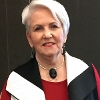When Public Librarians Meddle| Scales on Censorship
Facilitating research, public librarians question if school assignments are age-appropriate.
I am the chair of the program planning committee for our state library conference next year. My committee would like to have at least one program that deals with intellectual freedom. Many committee members want to focus on book censorship. We have had several book challenges in our state, but I think we should include other issues as well. What is your suggestion?
Book censorship is a main concern for school librarians, since most challenges happen in schools. But other intellectual freedom issues also need to be at the forefront. Consider these topics:
ACCESS TO INFORMATION: Is access to all resources equitable? How should schools and libraries be addressing the digital divide? What school library policies should be implemented to assure students that there is no restricted access to library materials?
CONTENT FILTERING AND LABELING OF MATERIALS: Do librarians and teachers have the capability to unblock sites the school has filtered to ensure students can access constitutionally protected speech on the internet? How should librarians respond to companies that engage in content labeling? What is the library policy on labeling? What is the difference between prejudicial labeling and viewpoint-neutral labeling?
PRIVACY: What are your state privacy laws, and how do these laws extend to students? How do libraries protect students’ privacy regarding informational needs? What policies are in place to protect the confidentiality of patrons’ library records?
OTHER TOPICS TO CONSIDER: News literacy, identifying reputable websites when gathering information, rights and responsibilities for speech on social media sites, and exhibit spaces and bulletin boards in the school library.
“Captain Underpants” is extremely popular in the elementary school where I serve as librarian. I’ve never had a parent challenge these books until this year. The parents filing the complaint are new to our school. I tried to engage the mother in conversation, but she kept saying that there was a major problem with the books in the last school her son attended. I’m at a loss.
She probably raised an issue because the books were questioned in her son’s old school, but I doubt that she knows why. You engaged her, a key first step. I’m sure you explained how popular the books are and that no one has questioned them before. The best thing you can do is show her how to file a challenge. Then, let the process work.
According to the American Library Association’s Office for Intellectual Freedom, the series was first on the Top Ten Most Challenged Books List in 2013, eighth in 2005, fourth in 2004, and sixth in 2002. Objections to a same-sex couple in the newest book prompted the latest challenge, in 2019. Never be worried by these challenges. You serve the children in your school by recognizing and providing books that interest them.
There are very few school libraries in my state. As a result, the public libraries serve the reading and research needs of students. At a statewide workshop for children’s librarians, there were complaints that some materials students need to complete assignments don’t seem age-appropriate. What can public librarians do about that?
Public librarians must understand their role in helping students succeed. Librarians shouldn’t judge teacher assignments for age-appropriateness; that smacks of censorship. Instead, lead students to the information they need for their schoolwork. Teachers don’t always have control of the curriculum. Their job is to develop lesson plans that guide students in understanding and retaining information laid out by curriculum specialists. Library materials that are too difficult for some students may be too easy for others. I suggest that children’s librarians meet with teachers in the spring to determine what materials they anticipate students may need the following school year. This way, the library is prepared to help students succeed.
 Pat Scales is the former chair of ALA’s Intellectual Freedom Committee. Questions or comments: pscales@bellsouth.net.
Pat Scales is the former chair of ALA’s Intellectual Freedom Committee. Questions or comments: pscales@bellsouth.net.
RELATED
The job outlook in 2030: Librarians will be in demand
The job outlook in 2030: Librarians will be in demand
ALREADY A SUBSCRIBER? LOG IN
We are currently offering this content for free. Sign up now to activate your personal profile, where you can save articles for future viewing





Add Comment :-
Be the first reader to comment.
Comment Policy:
Comment should not be empty !!!